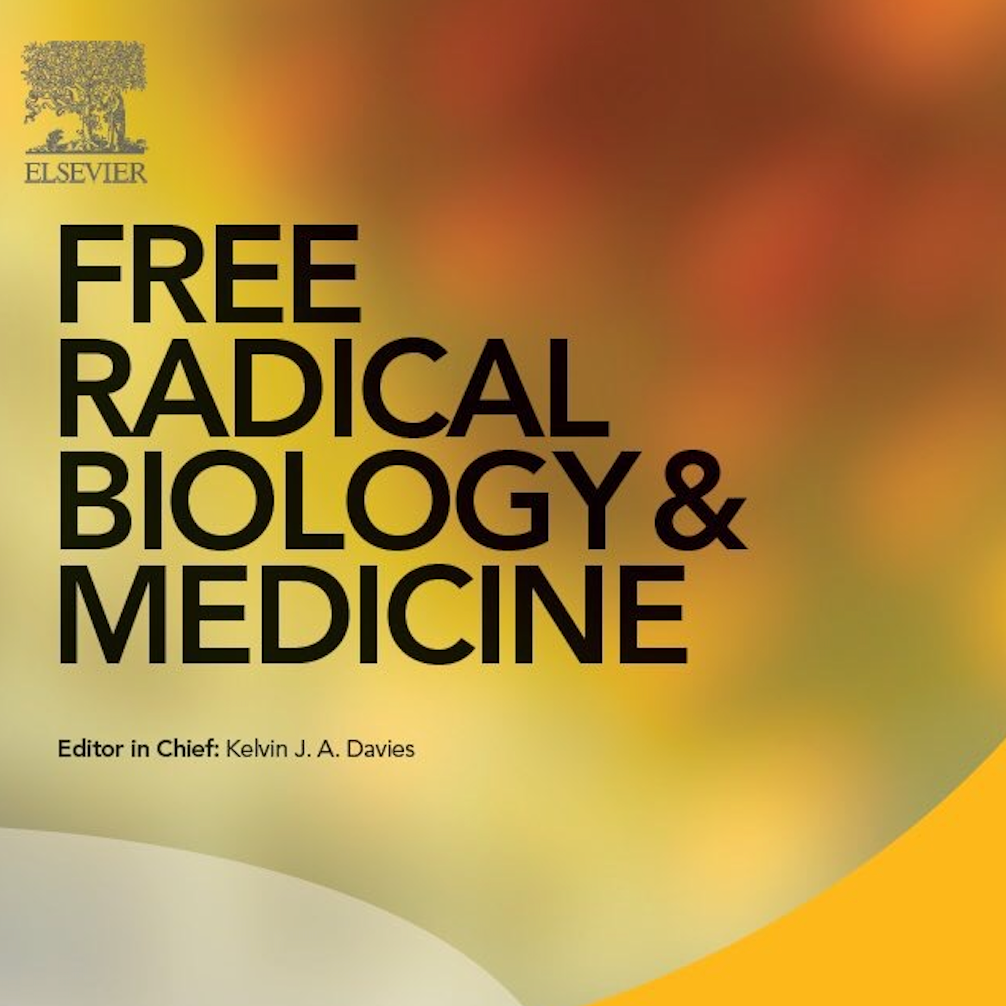
620
Downloads
7
Episodes
Free Radical Biology & Medicine has created a new series of podcasts featuring commentary and discussion of recently published Special Issues and/or Invited Review articles in the journal. In each podcast, an invited moderator and an author/guest editor discuss state-of-the-art research in the field of redox biology. Free Radical Biology & Medicine Special Issues and Invited Reviews are well cited and provide valuable insights for basic scientists and clinicians with special interest in redox signaling and pathophysiology. Our podcasts also aim to provide a useful platform for undergraduate/postgraduate teaching and research, as they capture current developments in redox biology and importantly offer career advice to Early Career Researchers.
Episodes
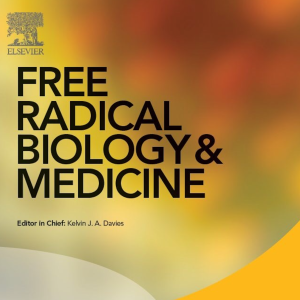
Monday Jan 20, 2025
Monday Jan 20, 2025
Discussing the special issue 'Unlocking Athletic Potential: Exploring Exercise Physiology from Mechanisms to Performance' published in the 2024 issue of the journal.
Speakers:
Prof. Maria Carmen Gomez-Cabrera, University of Valencia, Spain
Prof. Christoph Handschin, University of Basel, Switzerland
0:52 Introduction of the special issue
3:36 Discussing the differences between the acute perturbations induced by a single endurance or resistance exercise bout vs the long-term training adaptations
16:05 Commenting on the mechanism involved in muscle damage and the repeated bout effect
33:11 Five contributions dealing with skeletal muscle redox aspects in this special issue
43:38 Discussing a contribution in the special issue connecting the respiratory capacity of skeletal muscle mitochondria and athletic performance
57:19 Circadian rhythms influence exercise adaptations of skeletal muscle. Is the time to train very important for top-level athletes? What about the general population?

Tuesday Sep 26, 2023
Tuesday Sep 26, 2023
Discussing the FRBM special issue 'Thioredoxin reductase selenoproteins from different organisms as potential drug targets for treatment of human diseases' published in the September 2022 issue of the journal.
Speaker: Dr. Elias Arner, Karolinska Institutet, Sweden
Moderator: Prof. Henry J Forman, University of Southern California, USA
0:44 Introduction of Dr. Elias Arner
1:30 How and why Dr. Arner moved into selenium and thioredoxin research
6:48 Activities of TrxR and its multiple domains
10:18 How substitution of sulfurs in selenium results in a less or completely inactive thioredoxin reductase
16:25 Reduction of small molecules - is that just a lab curiosity or physiologically significant?
18:34 The good and the bad of modulating thioredoxin reductase activity
26:30 How there's a critical role for thioredoxin reductase in parasites
31:20 When you use thioredoxin reductase inhibitors in diseases, how do you go about it in a way that does not cause havoc?
34:35 Speculation on why there are 25 seleno proteins identified in animals but the activity of many of them remains a mystery
38:02 Advice for young investigators
41:06 Dr. Arner's work outside of science as an artist and writer

Thursday Aug 24, 2023
Oxidative Stress Responses in Plants
Thursday Aug 24, 2023
Thursday Aug 24, 2023
Discussing the FRBM special issue 'Oxidative stress responses in plants' published in the December 2022 issue of the journal.
Speaker: Prof. Karl-Josef Dietz, University of Bielefeld, Germany
Moderator: Prof. Frank van Breusegem, University of Gent, Belgium
1:10 How Prof. Dietz got started in research and his career
4:46 Regulation and importance of the Calvin Benson cycle in photosynthesis
9:52 How the collaboration between different groups from different countries established this current model of the mechanism
12:10 Elaborating on the characteristics
20:45 Findings where plant signs can take the lead in the future of the redox field
29:28 How plant redox research can contribute to food security in this time of climate change
38:55 Which major blinds spots are still in the plant redox network
47:10 Advice for younger researchers in the redox field

Saturday Jul 29, 2023
Saturday Jul 29, 2023
Discussing the FRBM issue 'Bench to bedside transition for pharmacological regulation of NRF2 in non-communicable diseases' published in the January 2023 issue of the journal.
Speaker: Prof. Masayuki Yamamoto, Tohoku Medical Megabank Organization, Japan
Moderator: Prof. Giovanni Mann, King's College London, UK
Prof. Masayuki Yamamoto is the Professor Director of Tohoku University Medical Megabank, an integrated biobank with two prospective large population cohorts for exploring personalized healthcare and medicine.
He has received numerous international awards such as the Lester Packer Award (2018) from SFRRI, Research Excellence Award from the Federation of Asia and Oceania Biochemists and Molecular Biologists (2021), Kahoku Bunka Association Prize (2021), and Ando-Momofuku Research Excellence Prize (2023).
- [0:29] Introduction of Dr. Yamamoto
- [5:07] Dr. Yamamoto's early career and important collaborations
- [15:49] Collaborating with mentor James Douglas Engle
- [27:07] Projects in a little black notebook
- [31:28] If cellular molecular studies due to phase 2 enzymes or involved in antioxidant enzymes
- [49:15] Similar key NRF2 architecture in human organs and mice
- [54:35] Does intervention of the key 1 NRF2 system contribute in any way to personal healthcare and medicine?
- [56:20] How to treat the brain independent of the heart and adjusting medicine interventions internationally.
- [59:41] A search for an activator or inhibitor of NRF2 pathways
- [1:08:13] Conclusion
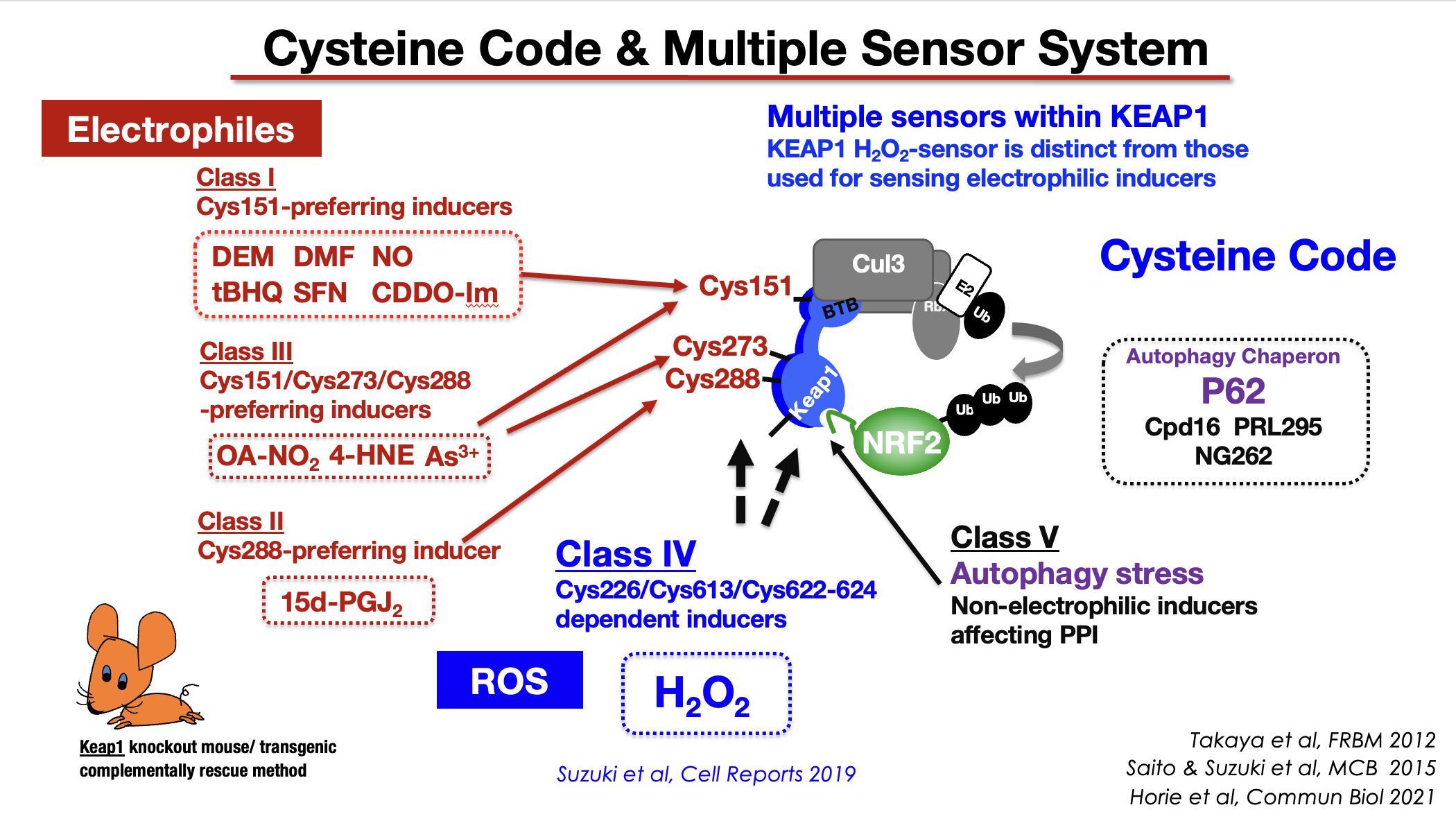
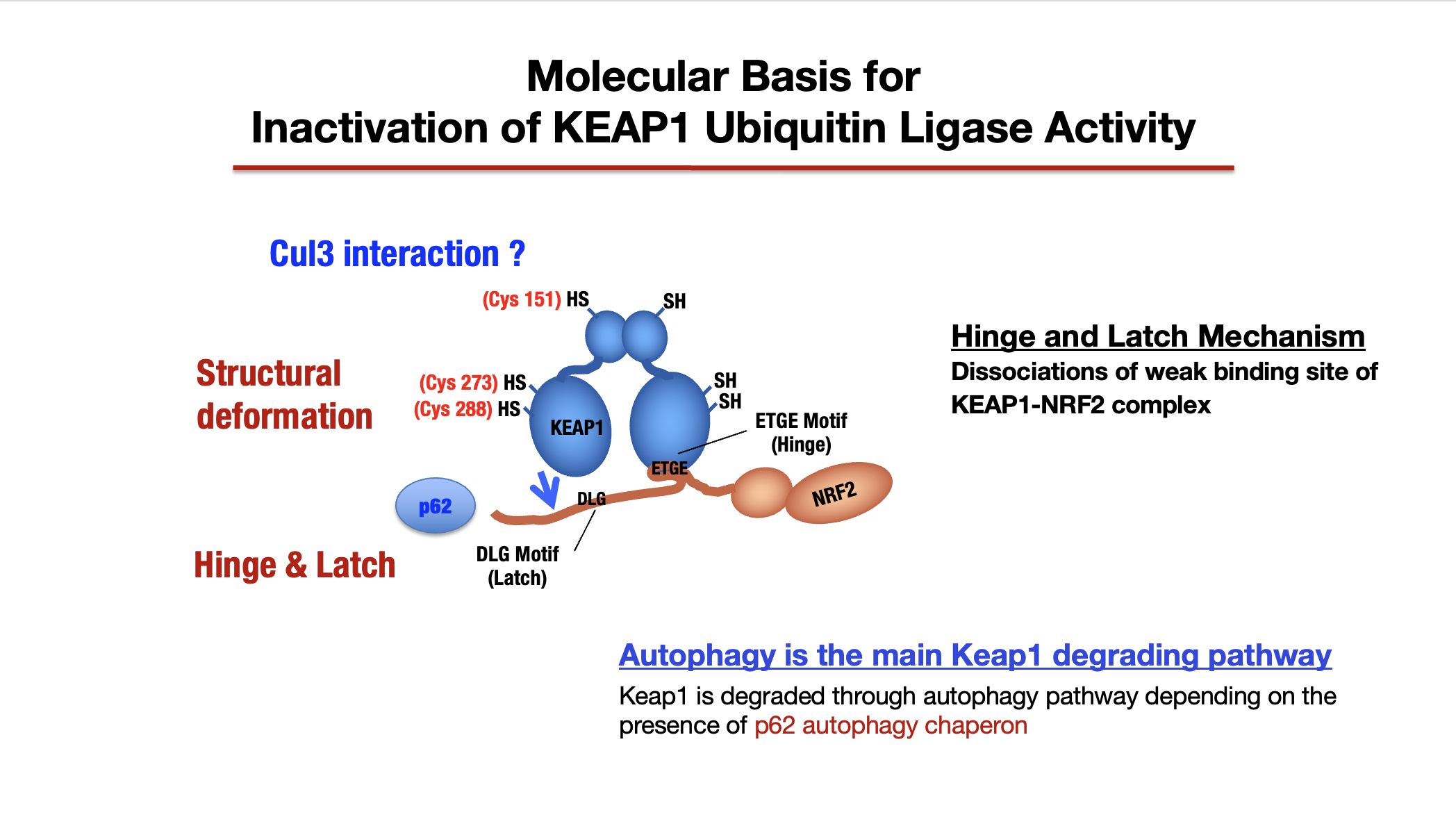

Thursday Jun 22, 2023
Lipid Peroxidation in Alzheimer’s Disease
Thursday Jun 22, 2023
Thursday Jun 22, 2023
Discussing the FRBM issue 'Lipid Peroxidation in Alzheimer's Disease' written by D. Allan Butterfield.
Speaker: Prof. D. Allan Butterfield, University of Kentucky, USA
Moderator: Prof. Jose Vina, Universidad de Valencia, Spain
Prof. D. Allan Butterfield is the Alumni Association Endowed Professor of Biological Chemistry; Associate Vice President for Research for Centers and Institutes and for RPAs; Director of the Redox Metabolism Shared Resource Facility; Interim Executive Director of Tracy Farmer Institute for Sustainability and the Environment; and Research Professor at the University of Kentucky.
- [0:25] Introduction of Dr. Butterfield
- [4:00] How Dr. Butterfield's maintained his early career
- [12:30] The source of peroxides in the neuronal membranes
- [16:13] The relevance of lipid oxidation in brain activity
- [24:30] How Dr. Butterfield's work in redox proteomics helps us to understand the role of specific proteins in the development of Alzheimer's pathology
- [37:03] Why metabolic disorders have such a major risk factor for the development of dementia
- [42:30] How down syndrome is a model of Alzheimer's
- [47:50] Dr. Butterfield's thoughts on future antioxidant strategies in the prevention and treatment of Alzheimer's & new therapeutic approaches
- [55:00] Advice for young people pursuing science and medicine as a career

Tuesday May 16, 2023
Tuesday May 16, 2023
Discussing the FRBM issue 'Hidden Networks of Aberrant Protein Transnitrosylation Contribute to Synapse Loss in Alzheimer's Disease' written by Stuart A. Lipton.
Speaker: Prof. Stuart A. Lipton, Scripps Research, UC San Diego, Yale School of Medicine, USA
Moderator: Prof. D. Allan Butterfield, University of Kentucky, USA
Prof. Stuart Lipton is a Professor and the Founding Director of the Neurodegeneration New Medicine Center, the Stepp Family Foundation Endowed Chair in the Department of Molecular Medicine of the Scripps Research Institute. Dr. Lipton is also an Adjunct Professor at the University of California, San Diego School of Medicine and an Adjunct Professor of the Yale University School of Medicine in the Department of Neurology. Dr. Lipton is a pioneer in the field of drug development and application for neurodegenerative disorders. He developed, characterized, and patented the first NMDA-type glutamate receptor to fight moderate to severe Alzheimer's Disease.
- [0:41] Introduction of Dr. Lipton
- [6:25] Dr. Lipton's training and career thus far
- [9:30] How Dr. Lipton has managed his large research group, numerous grants, and seeing neurological patients, all while extensively traveling for lectures and collaborations
- [12:15] Similarities and differences between S-nitrosylation and protein O-phosphorylation
- [23:13] What causes synapses to be lost in the transnitrosylation process & how the new agent, nitrosynapsin, would overcome these processes
- [40:40] Major factors in the triad of enzymes & why UCHL-1 is the first of these three enzymes to undergo S-nitrosylation
- [51:50] Relative contribution of the transnitrosylation mechanism to synaptic loss in light of other mechanisms
- [58:00] Final comments on Dr. Lipton's exciting research

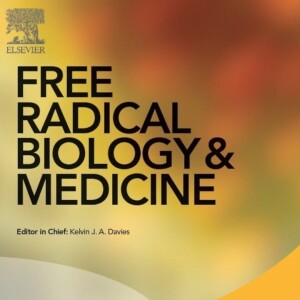
Monday Apr 10, 2023
Mitochondrial Redox Signaling in Aging-Related Diseases
Monday Apr 10, 2023
Monday Apr 10, 2023
- Speaker: Douglas C. Wallace, University of Pennsylvania, USA
- Moderator: Thomas Michel, Harvard Medical School, USA
Discussing the FRBM Special Issue ‘Mitochondrial Redox Signaling in Aging-Related Diseases - In Honor of Dr. Bruce N. Ames: A Pioneer in Mitochondrial Redox Signaling on Aging Research’. Edited by Prof. Jiankang Liu and Prof. Douglas C. Wallace.
Prof. Wallace is the Michael & Charles Barnett Endowed Chair in Pediatric Mitochondrial Medicine and Director of the Center for Mitochondrial and Epigenomic Medicine at the Children's Hospital of Philadelphia. Professor Wallace has contributed significantly to our understanding of Mitochondrial Human Genetics, a field that he himself founded in the 1980s. Over the years, Prof. Wallace's work has profoundly impacted a broad range of scientific fields from human evolution to neurodegenerative diseases and redox biology and medicine. Prof. Wallace has published over 500 papers, has an H index of 126, and his papers have been cited over 54,000 times.
- [0:38] Introduction of Prof. Wallace
- [2:50] Prof. Wallace's early career and mentors
- [10:17] Bringing in the concept of maternal inheritance of mitochondrial disease states into a role that was focused on Mendelian genetics
- [18:33] Most exciting "wow" moments in Prof. Wallace's career
- [22:50] How new technologies have influenced Prof. Wallace's work and pace of discovery in this field
- [27:51] What can scientists do to engage and educate individuals who are distrustful of science and scientists
- [30:44] What strategies Prof. Wallace has used to communicate his work from one scientific field to another
- [33:38] Advice for young people who are interested in pursuing basic science as a career and dream of being a leading scientist
- [35:04] Closing remarks
